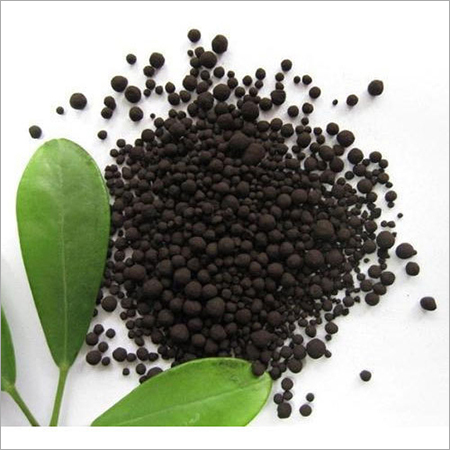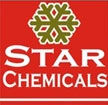
Humic Acid Granular Fertilizer
Product Details:
- Classification Organic Fertilizer
- Type Humic Acid
- Physical State Granular
- Release Type Quick
- Purity(%) 99%
- Application Agriculture
- Color Black
- Click to View more
X
Humic Acid Granular Fertilizer Price And Quantity
- 50-100 Kilograms
Humic Acid Granular Fertilizer Product Specifications
- Granular
- Agriculture
- Water
- Quick
- Humic Acid
- Black
- Organic Fertilizer
- Room Temperature
- 99%
Humic Acid Granular Fertilizer Trade Information
- 10000 Kilograms Per Week
- 7 Days
Product Description
Humic Acid Granular Fertilizer promotes water infiltration and water-holding capacity in the soil. This fertilizer improves soil quality, boosts seed germination, and assists plant stress resistance by increasing plant root development and metabolism. It also aids in the cleaning of irrigation lines by eliminating odors from slurry and compost piles. This fertilizer affects the soil's fixing qualities chemically, providing benefits such as neutralizing acid and alkaline soils and controlling soil pH. This fertilizer also aids in boosting the soil's buffering capacities and improving and optimizing plant nutrient and water uptake.
Humic Acid Granular Fertilizer Features:
- Increasing the soil fertility
- Humus contents
- Effectively chelates metals
Humic Acid Granular Fertilizer Specifications:
- Diameter: 2-4 mm
- Humic acid: 30%-35%/ 50%- 55%
- Organic matter (dry base): 40%-45%/60%-65%
- NPK: 3%
- Trace element: Ca, Mg, S, Cu, Zn, Mn, Mo
Applications of Humic Acid Granular Fertilizer:
- It is the best additive for organic fertilizer
- Used as raw material for humates based fertilizers
Humic Acid Granular Fertilizer FAQ:
Q. What is humic acid and how does it benefit plants?
Ans: Humic acid is a complex organic substance found in humus, the dark, organic matter in soil. It helps improve soil structure, water retention, nutrient availability, and microbial activity. This, in turn, can lead to better plant growth, increased drought tolerance, and improved yields.
Q. What are the benefits of using humic acid granular fertilizer?
Ans: Below are some of the benefits of this fertilizer:
1. Improved soil health: Humic acid helps build better soil structure, increases water holding capacity, and promotes beneficial microbial activity.
2. Enhanced nutrient uptake: Humic acid chelates nutrients, making them more readily available for plants to absorb.
3. Increased drought tolerance: Humic acid helps plants retain moisture, making them more resistant to drought stress.
4. Improved root development: Humic acid stimulates root growth, leading to stronger, healthier plants.
5. Increased crop yields: Studies have shown that humic acid can increase crop yields by 5-20%.
Q. What are the different types of humic acid granular fertilizers?
Ans: There are two main types of humic acid granular fertilizers:
1. Leonardite-based: Leonardite is a naturally occurring humic acid deposit. Leonardite-based fertilizers are typically slow-release and provide long-lasting benefits.
2. Fulvic acid-based: Fulvic acid is a smaller molecule than humic acid and is more readily absorbed by plants. Fulvic acid-based fertilizers are often used as a foliar spray or soil drench.
Q. How do I apply humic acid granular fertilizer?
Ans: Humic acid granular fertilizer can be applied at any time of year, but it is most effective when applied before planting or during seed germination. You can broadcast the granules over the soil surface and then rake them in, or you can band them around the base of plants. Always follow the application instructions on the specific product you are using.
Q. How often should I apply humic acid granular fertilizer?
Ans: The frequency of application will depend on the specific product you are using and the condition of your soil. Most products recommend applying humic acid granular fertilizer once or twice a year.
Q. Is humic acid granular fertilizer safe for all plants?
Ans: Humic acid is a natural substance and is generally safe for all plants. However, it is always a good idea to test the fertilizer on a small area of your garden before applying it to the entire area.
Q. Are there any other things I should know about humic acid granular fertilizer?
Ans: Humic acid granular fertilizer is not a substitute for traditional fertilizer. It is best used in conjunction with a balanced fertilizer program.
Tell us about your requirement

Price:
Quantity
Select Unit
- 50
- 100
- 200
- 250
- 500
- 1000+
Additional detail
Mobile number
Email
Back to top

 English
English Spanish
Spanish French
French German
German Italian
Italian Chinese (Simplified)
Chinese (Simplified) Japanese
Japanese Korean
Korean Arabic
Arabic Portuguese
Portuguese





